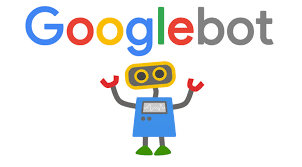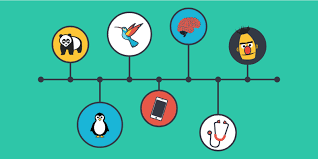
Gary Illyes of Google offers advice on how to use Google's best practices to outrank your rivals. He'll give you pointers on SEO and all things Google Search Algorithm.

Google Bot
Google SEO 2022
Algorithm Updates & Google Ranking Factors
As a SEO, it’s important to keep up with Google’s algorithm updates and how they might affect your website’s ranking. Here’s a quick guide to what you need to know for 2022.
Google makes thousands of algorithm changes every year, but there are a few core updates that happen more frequently and have a bigger impact on SEO. As we move into 2022, here are the updates you should be aware of and how they might affect your website’s ranking:
1. The Mobile-First Indexing Update
This update favors websites that are optimized for mobile devices and punishes those that aren’t. With more and more people using mobile devices to access the internet, it’s important to make sure your website is mobile-friendly. If it’s not, you could see a drop in your ranking.
2. The Page Experience Update
This update is all about delivering a great user experience. Google wants to make sure that people are landing on websites that are fast, easy to use, and free of any intrusive ads or pop-ups. If your website doesn’t meet these criteria, you could see a drop in your ranking.
3. The Core Web Vitals Update
This update focuses on three key factors: speed, responsiveness, and stability. In order to deliver a great user experience, your website needs to be fast, responsive, and stable. If it’s not, you could see a drop in your ranking.
Keep these updates in mind as you move into 2022 and make sure your website is optimized for all of them. If you do, you’ll be in good shape to maintain (or even improve) your ranking on Google.
How to improve ranking in Google
There is no easy way to guarantee a top spot on Google, but there are some things you can do to improve your chances:
1. Publish high-quality content
Google’s algorithms are designed to surface the best and most relevant content for each query. That means if you want to rank higher, you need to publish high-quality, keyword-rich content that’s relevant to what people are searching for.
2. Optimize your website for mobile devices
As mentioned above, the Mobile-First Indexing Update favors websites that are optimized for mobile devices. So if you want to improve your ranking, make sure your website is responsive and looks great on all screen sizes.
3. Make sure your website is fast and stable
Google wants users to have a great experience when they land on your website. That means your website needs to be fast and stable. If it’s not, you could see a drop in your ranking.
4. Use relevant keywords
Keywords are still important for SEO. Make sure you’re using relevant keywords throughout your website so that Google can surface your content when people are searching for those terms.
5. Build backlinks
Backlinks are still an important ranking factor for Google. That means if you want to improve your ranking, you need to focus on building high-quality backlinks from other websites.
By following these tips, you can improve your chances of ranking higher in Google. Just remember that there’s no guarantee you’ll achieve a top spot and that SEO is an ongoing process. So keep at it and you’ll be sure to see improvements over time.
google ranking factors, google seo, google algorithm updates, google core updates, google mobile-first indexing update, google page experience update, google core web vitals update, google ranking, how to improve google ranking, improve google ranking, seo tips, seo 2022, google seo tips, google seo 2022
Google SEO Tools & Software
There are a number of tools and software you can use to help with your SEO efforts. Here are a few that we recommend:
1. Google Search Console
Google Search Console is a free tool that gives you insights into how your website is performing in Google search results. It also allows you to submit your website to Google for indexing and track any issues that might arise.
2. Google Analytics
Google Analytics is a free tool that lets you track various metrics about your website, including traffic, bounce rate, and conversion rate. You can use this data to improve your website and ensure that it’s performing well in search results.
3. Moz Pro
Moz Pro is a paid tool that offers a number of features to help with your SEO, including keyword research, link building, and site audits.
4. Ahrefs
Ahrefs is a paid tool that offers a number of features to help with your SEO, including keyword research, backlink analysis, and site audits.
5. SEMrush
SEMrush is a paid tool that offers a number of features to help with your SEO, including keyword research, competitive analysis, and site audits.
By using these tools, you can get insights into your website’s performance and make necessary changes to improve your ranking. Just remember that SEO is an ongoing process, so be sure to keep track of your progress and continue making improvements over time. google seo tools, google search console, google analytics, moz pro, ahrefs, semrush, seo software, seo tools, best seo tools, google seo software, google seo tools, google seo tools 2022
Google SEO: The Complete Guide
Are you looking to improve your ranking in Google search results? If so, then you need to know about Google SEO.
SEO is the process of optimizing your website for Google’s search algorithm. By following best practices and understanding how Google’s ranking factors work, you can improve your chances of ranking higher in search results.
And that’s what we’re going to cover in this guide. We’ll give you an overview of what SEO is and how it works. Then we’ll dive into each of Google’s major ranking factors and share tips on how to optimize for them. So let’s get started!
What is SEO?
SEO stands for “search engine optimization.” It’s the process of optimizing your website to improve your ranking in Google search results.
There are a number of factors that Google takes into account when determining where to rank your website. These include things like the quality of your content, the relevance of your keywords, and the strength of your backlink profile.
By understanding how these ranking factors work, you can make changes to your website that will improve your chances of ranking higher in search results. And that’s what SEO is all about.
Why is SEO important?
SEO is important because it can help you attract more traffic to your website. And the more traffic you have, the more opportunities you’ll have to convert visitors into customers.
Think about it this way: if you’re not ranking high in search results, then you’re missing out on potential traffic. And if you’re not getting traffic, then you’re missing out on potential customers.
So if you want to attract more visitors and convert more of them into customers, then you need to make sure your website is optimized for Google’s search algorithm. And that’s what SEO is all about.
How does SEO work?
SEO works by optimizing your website for Google’s search algorithm. As we mentioned earlier, there are a number of factors that Google takes into account when determining where to rank your website.
By understanding how these ranking factors work, you can make changes to your website that will improve your chances of ranking higher in search results.
Some of the most important ranking factors include the quality of your content, the relevance of your keywords, and the strength of your backlink profile. Let’s take a closer look at each of these factors.
Content quality
The quality of your content is one of the most important ranking factors. Google wants to provide its users with the best possible results, so it will favor websites with high-quality content.
To gauge the quality of your content, Google looks at things like spelling and grammar, length, formatting, and overall originality. The better your content is, the more likely you are to rank higher in search results.
Relevance
Another important ranking factor is relevance. Google wants to provide its users with results that are relevant to their search query. So if you want to rank for a certain keyword, then your website needs to be about that keyword.
You can increase the relevance of your website by including the keyword in your title, in your meta tags, and throughout your content. The more relevant your website is to the user’s search query, the more likely you are to rank higher in search results.
Backlink profile
The strength of your backlink profile is another important ranking factor. A backlink is a link from another website to yours. And the stronger your backlink profile is, the more likely you are to rank higher in search results.
To build a strong backlink profile, you need to get links from high-quality websites. The best way to do this is to create great content that other people will want to link to.
If you can do all of these things, then you’ll have a website that is optimized for Google’s search algorithm. And that means you’ll have a better chance of ranking higher in search results.
Off-page SEO refers to the activities undertaken outside of your website that can help improve your website’s visibility and organic traffic.
Some common off-page SEO activities include link building, social media engagement, and creating informative content such as blog posts and infographics.
Off-page SEO is important because it helps to improve your website’s authority and credibility. The more high-quality links you have pointing to your website, the higher your website will rank in search results.
And the more people that are talking about your brand on social media, the more likely it is that they’ll visit your website.
So if you want to improve your website’s visibility and organic traffic, make sure you focus on both on-page and off-page SEO.
SEO Tips and Tricks
Here are a few tips and tricks that will help you optimize your website for Google’s search algorithm:
– Use keyword-rich titles and meta tags: Make sure your title and meta tags are keyword-rich and relevant to your content. This will help Google understand what your website is about and index it accordingly.
– Use keyword-rich anchor text: When you link to other websites, use keyword-rich anchor text. This will help Google understand what your website is about and index it accordingly.
– Get links from high-quality websites: The best way to build a strong backlink profile is to get links from high-quality websites. The best way to do this is to create great content that other people will want to link to.
By following these tips, you can optimize your website for Google’s search algorithm and improve your chances of ranking higher in search results.
Google Search Console
Anyone with a website can use Google Search Console, formerly known as Google Webmaster Tools, for free to track how Google sees their website and improve its organic presence. This includes seeing your referring domains, the functionality of your mobile site, rich search results, and the most popular searches and pages.
Google Search Console Set Up
Enter Google Search Console & key in your Google account information. If it’s a business website, make sure you’re logging in with your business (and not personal) account.
Google Webmaster Tools
To add a property, click.
Select “Website” from the drop-down option, then type the website’s URL. The URL that shows in the browser bar must be used exactly.
To continue, click.
Choose a method to prove that your website is yours (HTML file upload, domain name provider, HTML tag, GA tracking code, or GTM container snippet).
If your website is compatible with both HTTP and HTTPS, add each one separately. Each domain must be added as well (for example, digitalmarket.sg, blog.digitalmarket.sg, and www.digitalmarket.sg).
Google Algorithm Updates
Google has been known to make updates to their algorithms frequently, and as an SEO, it’s important to keep up and understand how these can affect the ranking of your website. Two notable algorithm updates are Google’s EAT update and the YMYL Your Money or Your Life update.
The EAT update was designed to improve the quality of search results by giving preference to websites with content that is high-quality and relevant. This means that if you want your website to rank higher in search results, you need to make sure that your content is well-written and relevant to your target audience.
The YMYL update was designed to give preference to websites that provide accurate and trustworthy information. This means that if you want your website to rank higher in search results, you need to make sure that your content is accurate and trustworthy.
If you can keep these two algorithm updates in mind, then you’ll be well on your way to optimizing your website for Google’s search algorithm. And that means you’ll have a better chance of ranking higher in search results.
Penguin Update in SEO
Helpful Content Update
Google’s Helpful Content algorithm update is launched in 2022, and it’s set to shake up the world of content creation quite considerably.
Its focus is to make sure the content is:
✔️ Original
✔️ Genuinely helpful
✔️ Written for people, by people
ORIGINAL
The update:
Google will be actively deprioritising articles that are a summary of what’s already been said by others. This is a practice that is woefully common in the world of content: completely pointless, unoriginal content. Those relying on #AI will need to reconsider their strategy.
The solution:
- Conduct your own primary research – find your own insights and share them.
- Interview subject matter experts to generate expertise and experience-led, properly original content.
- Think outside the box, and approach topics from a completely different angle to those that are being covered.
GENUINELY HELPFUL
The update:
Google will be looking for satisfying user experiences. They want to prioritise content that actually fully answers questions being asked, and ensures that they don’t then need to go to a different website after that to find a better answer, or plug an info gap.
The solution:
Create comprehensive content that covers all of the questions that are being asked. Tools like Semrush and AnswerThePublic give you lists of questions being typed in around a topic, helping you form strong, structured content that will cover every base.
WRITTEN FOR PEOPLE, BY PEOPLE
The update:
Ask yourself: Would this content exist if it wasn’t for search engines?
if not, you’re focusing too much on search engines and not enough on your actual reader.
If you’re writing a piece of content simply because it’s trending, and isn’t of benefit to your audience, you’re also going wrong.
SEO best practice of course still exists, but your content should be people-first.
The solution:
Dump the cheap content mills, and don’t rely on AI to write your content for you. It’s not powerful enough to tackle this yet.
Review your existing content. Is it clearly written by a real person, for real people? Does it have perspective and personality? Or do you sound like a machine?
EAT in SEO
Expertise, Authoritativeness, and Trustworthiness are abbreviated as E-A-T. E-A-T is incorporated into Google’s Search Quality Evaluator Guidelines and its algorithm. Even Google acknowledges the importance of E-A-T.
YMYL Your Money or Your Life Google Algorithm
Some pages are referred to by Google as “Your Money or Your Life” (YMYL); these are pages for which Google wants to provide not only relevant information but also accurate information because it believes that they may have an impact on “a person’s future happiness, health, financial stability, or safety.”
Google Manual Penalty
Google issues a manual penalty it there are suspicious activities attempted by Webmasters to manipulate Google Search Rankings. The reviewer assesses whether the site is in accordance with Google’s criteria before applying the penalty. A manual penalty typically lowers the ranking of pages or websites in Google Search.
Common Black Hat SEO Practices that Risks Manual Penalty Include:
Negative SEO
Why does Google give a manual penalty
Google may give a manual penalty for any of a number of reasons, including but not limited to:
– Keyword stuffing: This is when a website includes too many keywords on a page in an attempt to manipulate Google’s search results. This can result in a penalty because it creates a poor user experience.
– Link farming: This is when a website includes links to other websites that are not relevant to the content on the page. This can result in a penalty because it’s viewed as manipulative behavior.
– Negative SEO: This is when someone tries to harm another website’s ranking by building spammy or low-quality links to the website. This can result in a penalty because it’s an attempt to manipulate Google’s search results.
– Panda update: This is when Google updates its algorithm to penalize websites that have low-quality or thin content. This can result in a penalty because it means that the website is not providing a good user experience.
– Pay for Link: This is when a website pays for links in order to manipulate Google’s search results. This can result in a penalty because it’s an attempt to manipulate Google’s search results.
– Search engine submission: This is when a website submits its URL to a search engine in an attempt to get indexed. This can result in a penalty because it’s an unnecessary step and it can be seen as manipulative behavior.
– Sitemap submission: This is when a website submits a sitemap to a search engine in an attempt to get indexed. This can result in a penalty because it’s an unnecessary step and it can be seen as manipulative behavior.
– Social bookmarking: This is when a website includes links to social media sites in an attempt to get more traffic. This can result in a penalty because it’s an unnecessary step and it can be seen as manipulative behavior.
– Web 2.0 properties: This is when a website uses web 2.0 properties such as blogs, forums, and social networking sites to build links. This can result in a penalty because it’s an unnecessary step and it can be seen as manipulative behavior.
How do you recover from a manual penalty by Google?
The first step is to identify the reason for the penalty. Once you know the reason, you can take steps to correct the issue and then submit a reconsideration request to Google. If your request is approved, the manual penalty will be removed and your website’s ranking will improve.
If manual penalty involves unnatural outbound links, we would also need to submit a Link Disavow request to Google.
Web crawlers are used by Google, a completely automated search engine, to crawl through the internet, index listings of the search results in it’s search results page, allow users to easier find information in the internet. By matching the right user intent to your content, SEO increases conversions. Google will accurately rank a page if the objective of the page is made clear.
Google makes 500–600 adjustments to its algorithm every year. Major upgrades, like BERT or Passage Ranking, can have cause disruptions to SEO efforts, but the majority of those changes are minor and do not significantly affect rankings.

